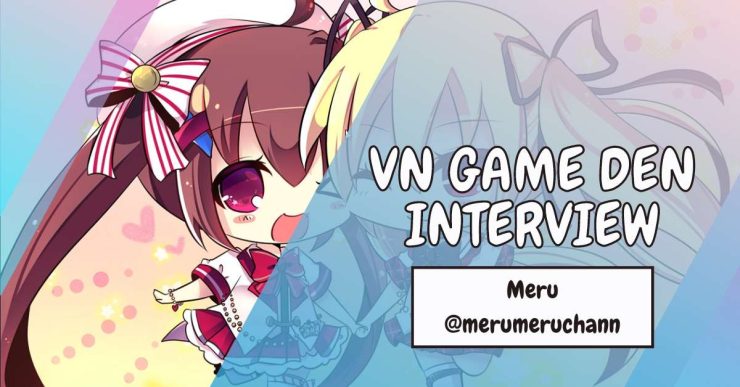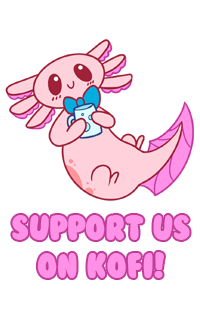Meru is a freelance translator who has been in the translation scene for a while now! She’s worked on projects like Kanen’s route in Island, the Moon route in Rewrite, Love Cube, and multiple mobile games for Voltage like Be My Princess 2. She’s also the CEO of Love Lab, a company that localizes and publishes visual novels and other products. Today, we decided to sit down with Meru to learn more about her career, what it’s like to be a translator, and what she’s currently working on!
Can you tell us a bit about yourself and what you do?
I’m Meru, and I work as a freelance Japanese to English translator of visual novels and other media while also running my own VN localization and publishing company. I also sometimes do editing and QA work, and other random things.
How did you get your start in translation?
After graduating with a BA in Japanese studies from a UK university, I moved to Japan and worked in an office for a year and a half while simultaneously building up experience with freelance translation and writing work. I eventually got to the point where I was able to quit the office job and translate full time. I started out mostly doing mobile otome games then soon transitioned into VNs as well as other games and media.
What sparked your interest in visual novels?
I honestly can’t really remember; I think I must have been about 13 when I discovered visual novels for the first time via image sharing boards. I then found my way into some IRC channels where I was able to download and “play” my first visual novels, although they were in Japanese, so I had no idea what was going on! I was always a big fan of choose-your-own-adventure gamebooks, and seeing this idea translated into a game format was fascinating to me. When I learned more about visual novels and started playing some fan translations, I was attracted to the kinds of stories that were being told and the content; seeing romance and sex as the primary themes in a game was new and exciting, and I was inspired by the creativity I saw within the medium.

You own a localization and publishing company called Love Lab. Can you tell us a bit about that business?
We offer Japanese <> English localization services as well as licensing and publishing Japanese visual novels in English and Chinese.
What inspired your interest in large scale localization and publication?
Seeing what other companies in the industry, such as Mangagamer, JAST, and Sekai Project, were doing was really inspiring to me, and I learned a lot from first following their progress as a fan and later working with some of them as a translator. I also saw the huge selection of games out there that were still untranslated and figured that there was more than enough space for another company in the market. Plus, I felt that I had been decently successful with my translation career and I wanted to challenge myself further.
What do you look for in particular in choosing what works you’re going to translate, localize, or publish?
Basically, I tend to pick things based on personal preference. This usually means that the game has something that catches my eye, whether that’s the art, the story, or something else. For example, Chinkamo Twins features art by one of my favorite artists, Naenae, and Sweet Sugar Temptation has art from another favorite artist as well as the coziest winter vibes.
Can you talk about some projects you’ve worked on?
There are so many! One of the highlights would be LAMUNATION!, Love Lab’s first published title. I worked directly with the game’s writer and developer, which was a fun and enlightening experience. We both took a chance on each other and it worked out really well in the end. Additionally, I had a great team for the localization, including Blick as the English translator and the Chinese team who had originally worked on the fan translation.
One of the projects that is closest to my heart is the FLOWERS series (English version published by JAST USA). The prose was difficult to translate but a pleasure to work on, and after working on all four games in the series, the characters felt like old friends. I also felt like my own translation skills developed with each game, and I’m really proud of the results. Translating the final game was a very emotional experience, both due to the story itself and my own attachment to it—I’d be lying if I said I didn’t shed a few tears while working on it!

In your own words, why is it important to translate works into another language?
I think that stories offer us an opportunity to broaden our minds through them, and being able to experience stories from other cultures whose language you don’t speak allows you access to different perspectives and worldviews. When it comes to visual novels specifically, it’s a medium that was born and refined in Japan; translation of visual novels into English has allowed more people to experience that medium and directly contributed to the EVN scene.
When translating, have you noticed any huge differences in Japanese media compared to American media?
It’s really hard to say, because there are so many different genres within both Japanese and American media. When it comes to VNs, I often work with commercial Japanese games, whereas the English scene is predominantly indie, and the two industries are very different from one another.
Is there a specific genre you prefer to translate over others?
I enjoy translating any and all genres; eroge, BL, yuri, all-ages. However, I generally prefer translating adult games over all-ages ones. I would say that horror is probably my favorite to translate as it’s also my favorite genre to play/read. My least favorite genre to translate would be comedy.
Is there any project you’re currently working on that you can share with VN Game Den readers?
Love Lab has recently acquired a new license that I’m going to be translating myself. I can’t share the title yet, but it’s a yuri game!
If you would like to check out Meru and follow her, you can check out her Twitter page here. If you want to keep up with Love Lab’s upcoming projects, we strongly recommend following them on Twitter!







